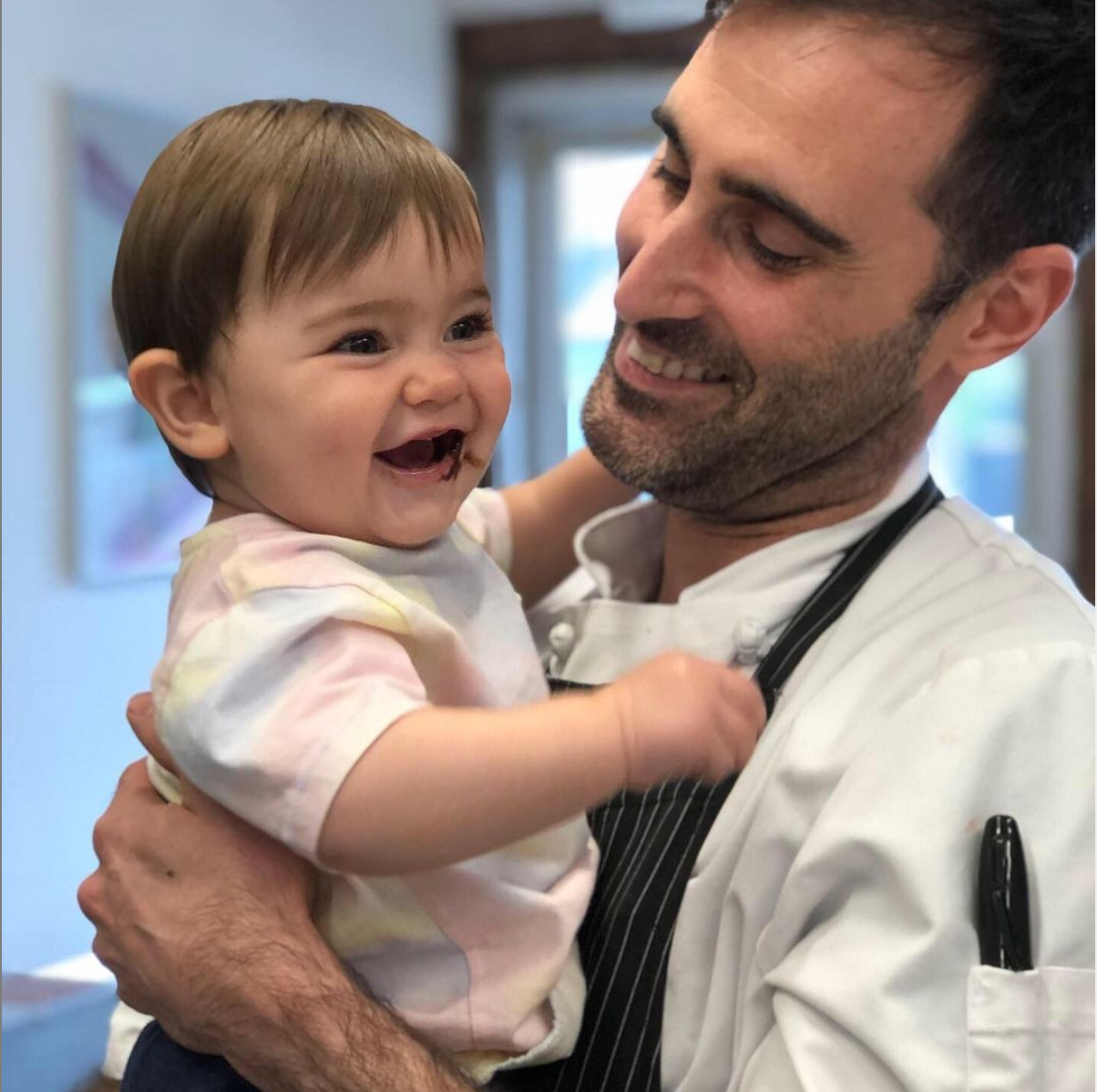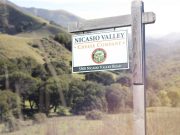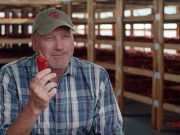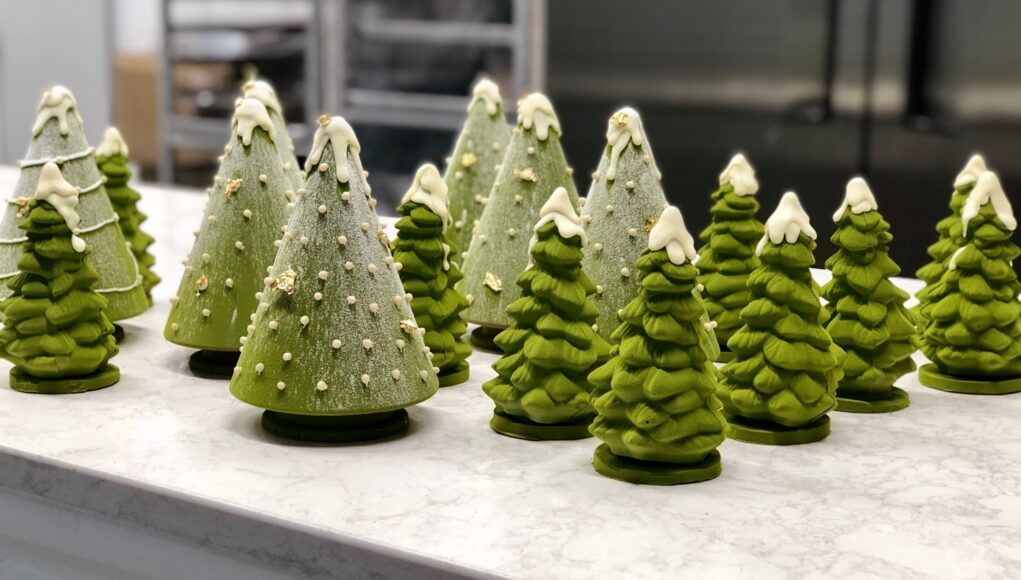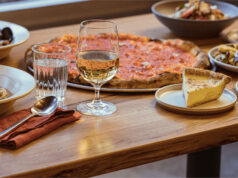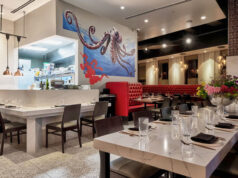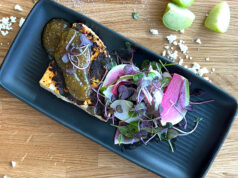There’s a worldliness in Karat Chef/Owner Julian Helman’s voice. In addition to attending French immersion school, his chef father’s German, his mother’s French, with all kinds of other stuff mixed in there, as well. This worldliness extends to his education and career: from the Culinary Institute of Canada on the Atlantic, to Chicago, to Wolfsburg, Germany, Hong Kong, to The Valrhona School in Tain-l’Hermitage, France.
“But here in Canada, we don’t look at people’s backgrounds,” Julian says. “Everyone was something else at some point but now they’re Canadian. And to me, I’m Canadian.”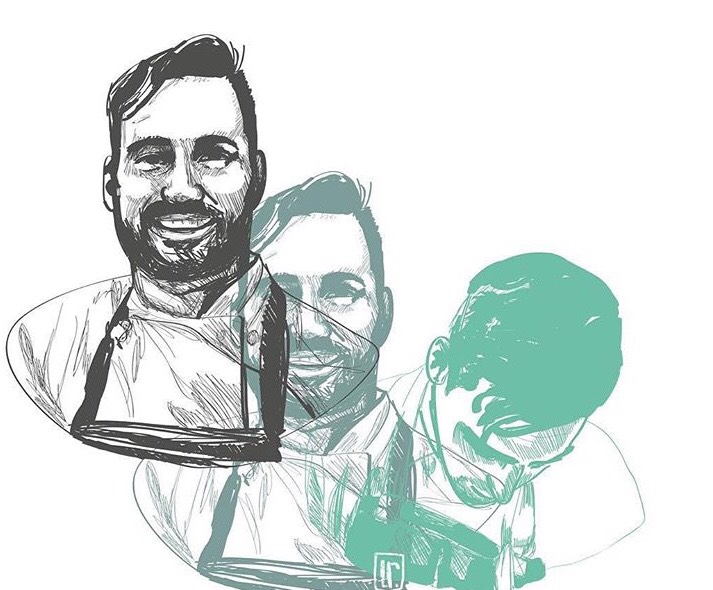
What brought you back to Canada and to Kelowna?
Kelowna was a fluke for me. I was working in Vancouver, running a hotel kitchen and I’d entered a transitional phase. A friend called, with a great job opportunity working at a winery in the Okanagan. The town was small, the property beautiful, and I could use the break. Vancouver’s an expensive city, my job there was intense. Moving to Kelowna, I was a bit of a fish out of water, but I was allowed to push boundaries for what we could do, and I was so taken away with the quality of everything. Having growers drop off at our back door 200 pounds of peaches that were still warm from the sun. In the South Okanagan everything was organic, beautiful and perfect. It was such a nice working environment for me. I just kind of fell in love with everything here and things kind of snowballed.
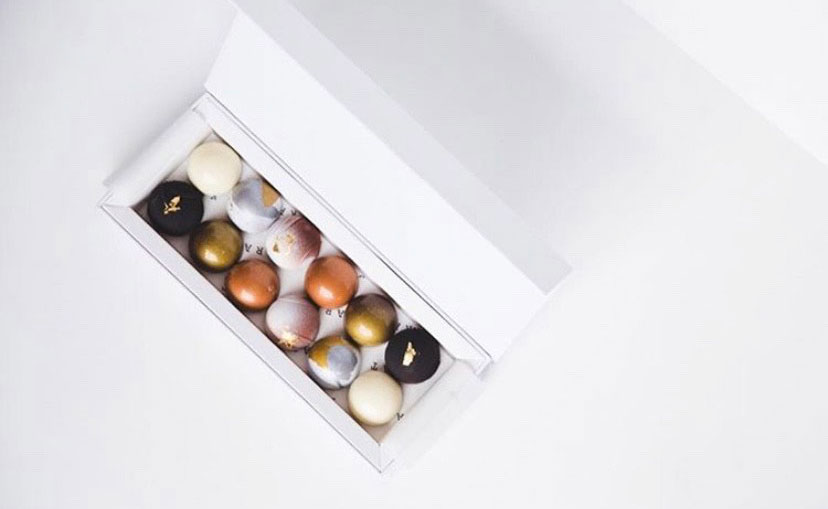
Back then, I’d done the job circle and worked at the best places here. And then I hit a brick wall and figured either I’d have to move or start a business. So I started my own business. We’ll be celebrating our 5th anniversary January 1st. I started the company with $400. We’ve now got two locations, we’re shipping all over the place and the company is exponentially growing. It’s a challenge, but it’s very good. It could have very easily gone the other way.
Explain the Karat concept?
Karat’s concept is fairly simple: We thrive on using very nice, simple ingredients. To me, it’s about simplistic food. I feel the more simple you make it, the more complex it is. It has to be perfect the more simple it is. And I believe strongly in using the best ingredients available, and not so much transforming it into something, but accentuating what you’re using. And trying to keep things pure and natural.
A couple of years ago I was struggling with it and wanted to get away from using colors on our chocolate. We use strictly Valrhona product. And I started thinking to myself, I was like, “You know, why am I going through all the effort of masking this beautiful chocolate that we’re paying 100 dollars for 3 kilos of, and we’re putting blue food coloring and doing all these things?” But the market is what it is. I had started kinda crazier and going super colorful and it was hard to break away from that. So, now we’re kind of 50/50, we try to meet somewhere in the middle. Our concept is really to use fine ingredients, to treat them respectfully, to do the best we can with it, to acknowledge nature and the people behind the product and show respect to them, that’s the main thing.
There are many fine chocolates in the world, Valrhona is definitely one. What’s made you a devotee?
Always first? Taste, Flavor. Quality. There are so many reasons but that obviously is #1 being a chef. The mouthfeel, the micron-particles in it are so fine, so developed. They have a very, very wide range of different chocolates and origins from different places. It’s almost like it’s never ending. So it’s always interesting for me.
Then from a technical standpoint, I find it easy to work with. I didn’t always find it easy. When I was a younger pastry chef, I actually found it quite difficult to work with. And then that kind of forced me to take more classes and actually go to Valrhona in Tain-l’Hermitage and see how they’re making the chocolate, and take classes from the people who work with it everyday and understand it.
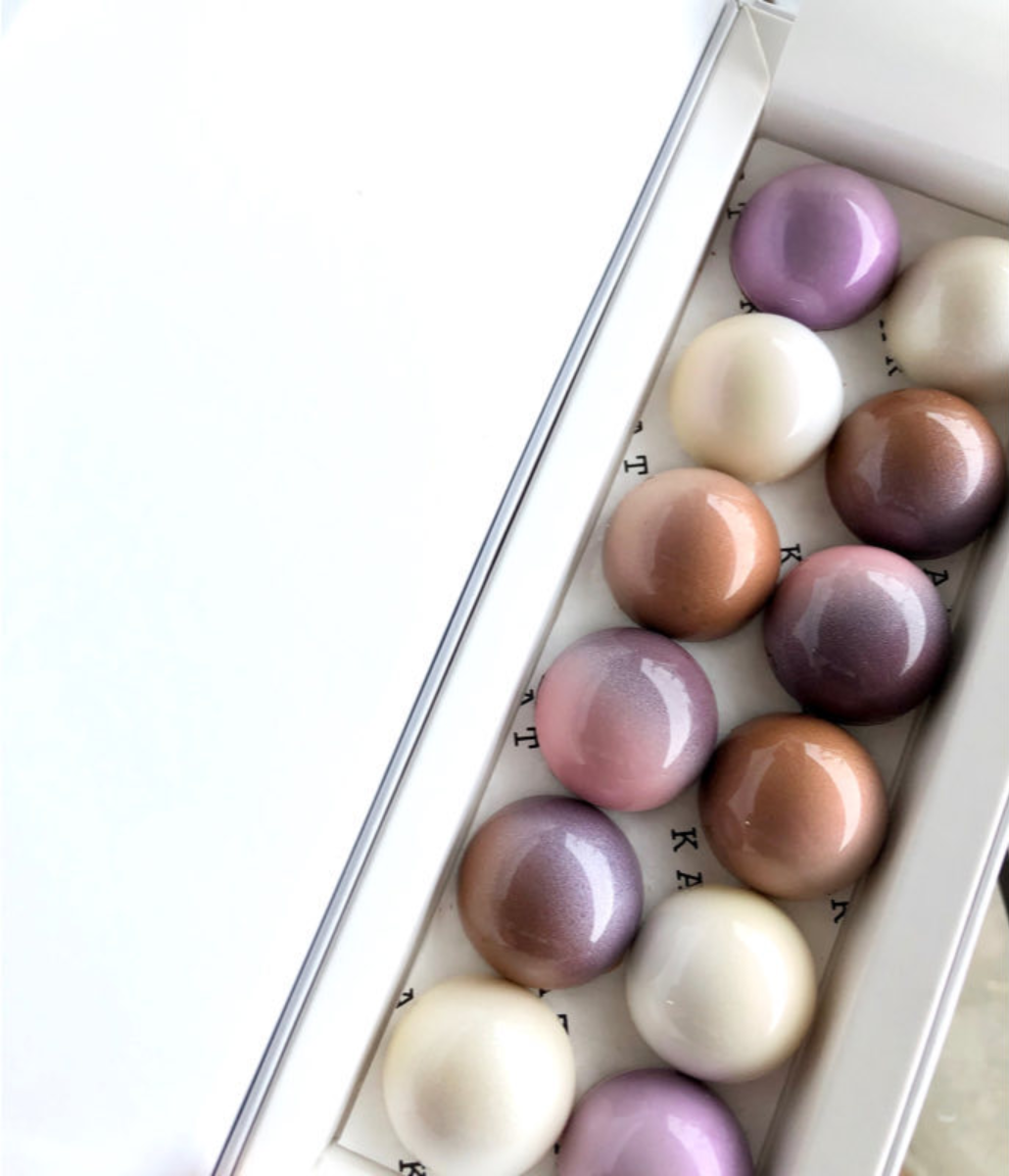 One thing that really impressed me was how well they treat their staff. They treat people like family there. They treat people with respect, and I can tell right off the bat that everyone who works for the company has it in their best
One thing that really impressed me was how well they treat their staff. They treat people like family there. They treat people with respect, and I can tell right off the bat that everyone who works for the company has it in their best
interest to make it better. And that’s something that I believe in with my company. And from an environmental standpoint, there’s no other company that can match it. They’ve got their B-Corp and they’re constantly looking for ways to improve, lower their emissions, and do things for people. They’ve supported me all the way through since we started business, they’ve been really there for me. Nothing but love for that company, for sure.
One of your Karat web descriptions says, “it’s an old European style mixed with an Okanagan twist”. Give me your definition, impression of Okanagan?
To me, the Okanagan is about simplicity. Nature is a huge reoccurring theme here for lots and lots of people. I think where we’re situated in the world, anywhere you look, 360º, you’re in the mountains and the trees, there’s a beautiful lake, the cleanest water, and you know, we definitely pride ourselves on somewhat being environmental stewards.
For a lot of people that’s their core value. We value the industries around here. Everybody works very hard here, harder than I’ve worked anywhere in my life. It’s very seasonal here. We have a smaller population here and everyone works their asses off. You’ve got to make money where you can. And help each other out. Businesses here collaborate on numerous things. And, we try to support each other by promoting each other, buying product, and there’s lots of markets, lots to do.
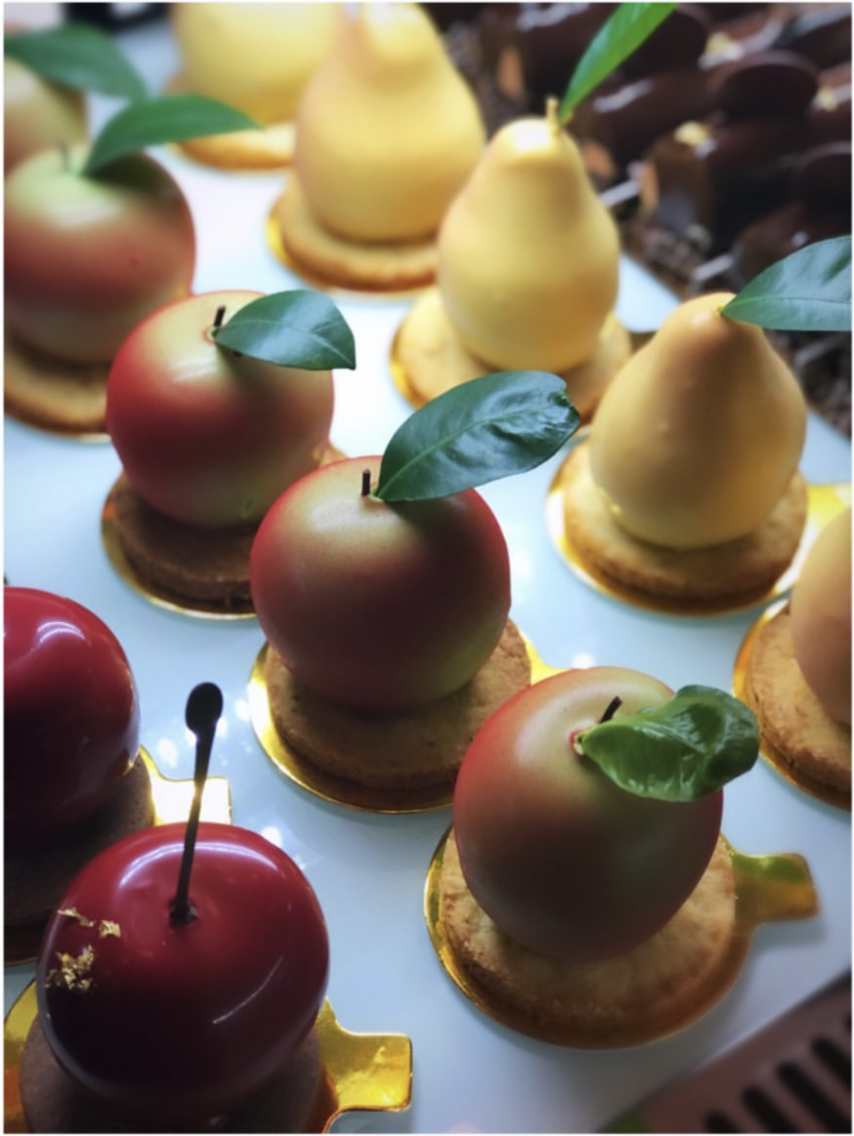 And I think that’s the big reason Kelowna has been in this kind of bubble during Covid, you know, you don’t hear about businesses shutting down. You don’t hear about the horror stories of what’s happening. Because everyone here bands together. A very community-minded place. To me the Okanagan style is pretty laid back. We like beautiful things, pure things. We have wineries and orchards everywhere. Literally a 5-minute drive from downtown you can be in an orchard somewhere.
And I think that’s the big reason Kelowna has been in this kind of bubble during Covid, you know, you don’t hear about businesses shutting down. You don’t hear about the horror stories of what’s happening. Because everyone here bands together. A very community-minded place. To me the Okanagan style is pretty laid back. We like beautiful things, pure things. We have wineries and orchards everywhere. Literally a 5-minute drive from downtown you can be in an orchard somewhere.
And in our shop, the Okanagan twist we use is Okanagan products. All of our fruit, all of our teas, if we have vegetables, cheeses that we use, we try to use as much as we possibly can from this locality.
And about your talent, skill; what ‘is it’ that you have, and to what do you attribute your success?
I work harder than anyone else. That’s it. That’s the key. Just always believe in what you’re doing. And work more hours than anyone else around you. I think part of that is understanding that I’m making someone’s day special. It could be a birthday, a wedding; we can transform someone’s mundane into something special. And that’s my father talking to me as a young kid working in his kitchen.
Talk about your family, and how fatherhood’s changed you?
Oh, my god. It’s changed a lot. My daughter Hazel is now two. We had Hazel one month before opening our shop downtown. It was a really crazy time for my wife and I. We were both working like animals. My wife was at home and I was trying to be home as much as possible. So that was tumultuous as one of the happiest times of my life and exciting times with the shop. But it also tired us out.
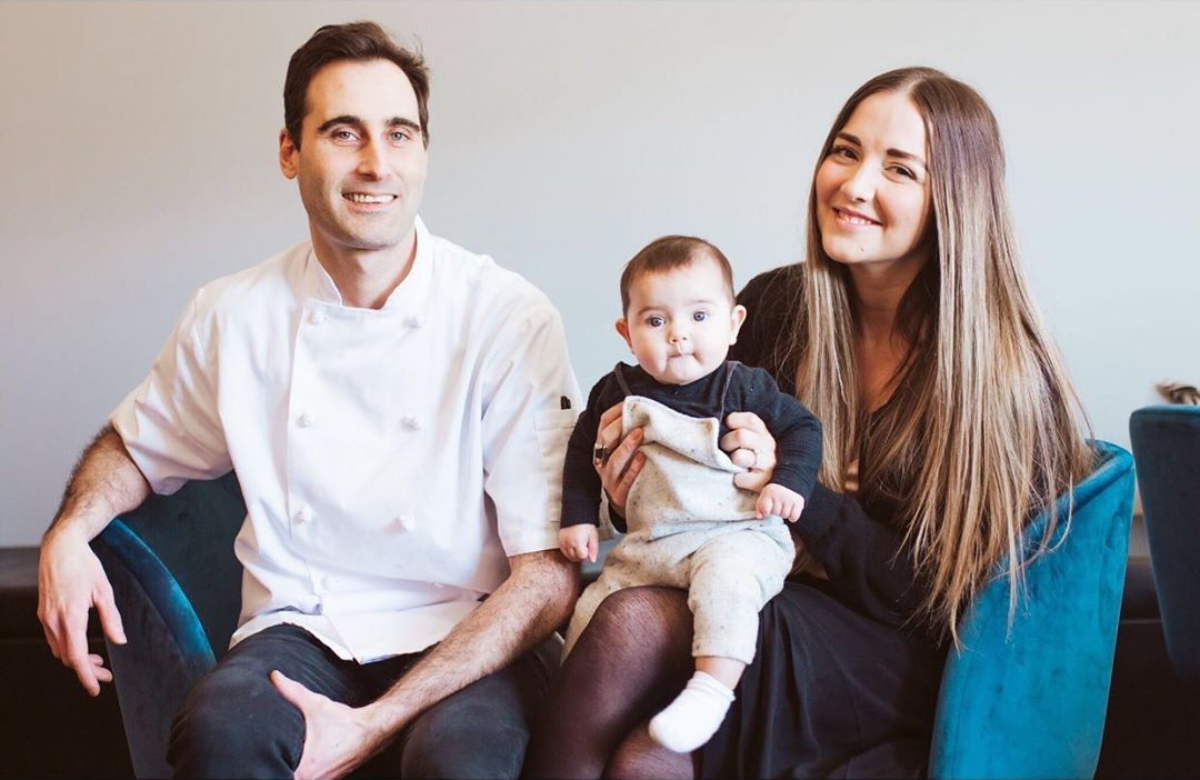 Interesting, now having children, I try not to put in the hours I used to at work, for sure. I think every day I’m at work, ultimately it’s about what’s in the best interest of my family. Am I making the right choices in the business for my family and the future? The business is not #1 to me. It’s definitely my family. Oh, And patience. Being a dad has definitely taught me PATIENCE.
Interesting, now having children, I try not to put in the hours I used to at work, for sure. I think every day I’m at work, ultimately it’s about what’s in the best interest of my family. Am I making the right choices in the business for my family and the future? The business is not #1 to me. It’s definitely my family. Oh, And patience. Being a dad has definitely taught me PATIENCE.